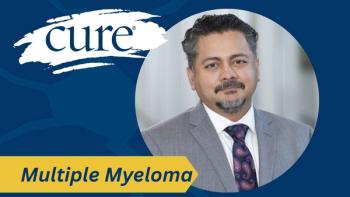
Saying Goodbye
There is no doubt that the most spiritually, emotionally, and psychologically difficult thing for one human being to do with another is to say goodbye. And this goodbye is not of the type “I’ll see you later”, but rather it is goodbye forever because I am going to die. At some level, saying goodbye has a variety of meanings, and all of which implies that one will soon be gone, and you will not see me or talk to me. People from various backgrounds and religious traditions have differing perspectives on this issue.
Being consciously aware that saying goodbye because we are going to die is a peculiar experience. Most of us construct a reality of living that equates to the idea that tomorrow is yet another day. What we’ve done yesterday or today is part of our past and includes how we have behaved toward others, the thoughts we’ve had, the things we’ve said, and the ways in which we have behaved are generally part of the past because tomorrow is another day to continue thinking, saying, and behaving. However, if the idea of the emanate arrival of our death is realized, the concept of saying goodbye takes on a very different set of meanings and experiences.
While one’s death is an important memory for virtually everyone, the person’s presence in your life diminishes greatly over time, usually, to the point where it will only exist as a memory mostly with a positive connotation. And herein lies the dilemma for most of us. Over time, the individual who we care about, perhaps deeply care about and even love, will fade or dim as a part of our everyday reality. And therein lies the emotional difficulty of grieving and the conflict that it implies as we struggle to combine both the memories of our prior relationship, with the harsh reality of the loss of the physical presence of that person in our life.
Realization of the need to say goodbye is a wholly unique experience for most human beings. While the idea of goodbye maybe just a formality or even a theatrical experience, for some the actual reality of the need is apparent. Exceptions to the theatrics include a variety of groups of human beings including those who suffer from a medical diagnosis in which death is a certain outcome or endpoint. This does not, however, include those who suffer death in an accidental manner or as a result of political or social conflict or even mental illness or advanced age.
Saying goodbye is important for the most obvious cases of a human health condition leading toward death such as incurable forms of cancer. Depending upon a vast number of health variables, some cancers are not yet curable or even controllable with various forms of treatment including surgery and chemotherapy. While most health providers are competently careful to diagnose the stages of the cancer and to establish a treatment protocol built around those stages, some cancers are just not yet curable, and death is likely within a certain set of parameters. Thus, the need for saying goodbye generally falls onto those individuals who face the certainty of death within the context of the treatment plan and the medical evidence that supports the plan.
Goodbye implies relationships with others. Spouses, children, siblings, neighbors, co-workers and the myriad of others who constitute the emotional/psychological community in which we live, recognizing the need to communicate goodbye is paramount. It represents a major task which we must recognize if we are to travel the journey from living to dying in a way that is healthful for ourselves and for those others in our psychological community. Inherent to our relationships within this community are commonly understood as forms of love and caring which provide the basis and the motivation to execute the process and achieve the goal of saying goodbye. What follows is the author’s experience with saying goodbye because of a diagnosis of cancer.
My recognition of the eventual need to say goodbye began with my journey with cancer officially began on November 11, 2014. Unofficially it began in the early fall of 2014 with my complaining about a sore back. At the time I was a very healthy 63-year-old husband, father, grandfather, and university professor and psychologist by profession who was currently serving as the President of the Maine College of Health Professions. Successful laminectomy surgery provided little to no relief for the ever-increasing back pain. Referral to another orthopedic provider resulted in urgent kyphoplastic surgery in an attempt to stop the cascade of vertebral compression fractures. A biopsy was also taken which led to the diagnosis of advanced Multiple Myeloma cancer. This is a relatively rare form of blood cancer which is at the present incurable and has a statistical average life span of 6 or more years.
Cancer is a complicated disease. It certainly has a distinct physical aspect that runs a gamut from invisible pain to gross disfiguration depending on the type of cancer one has. Physical and emotional changes like strength, balance, and stamina can readily affect our daily living. And, at the purely psychological level, we learn that we are somehow different than others because we have this disease in our body and acceptance of a changed self-concept can be psychically painful for many. There are many faces to cancer. These faces run a marathon of feelings — from sadness, fear, joy, belief, faith to a myriad of other dynamics. Just the idea of having a disease in our body can, for some, cause a sense of disruption to our self-concept. And certainly, for all cancer patients and their families, a change takes place in our psyche that hopefully provides the opportunity for the expression of courage, gratitude, and positivity.
My spouse Bonnie is a unique, strong and loving person who was committed to helping me manage the cancer. Her lifelong experiences as a registered nurse, with a Ph.D. in nursing, and now retired Professor of Nursing from the University of Southern Maine continues to positively influence my care and quality of life. She was determined that this bad, catastrophic and ultimately fatal situation was not going to destroy us. How my beloved Bonnie managed to support me realizing that I stood a good chance of dying and leaving her as a widow, I’ll never know because of the type of person is. She is a pillar of strength to me and ultimately to the children and family members, always providing the needed support when someone was in crisis over my disease. I am confident that she brought these same qualities to her patients, families, and nursing students.
In reality, my diagnosis with cancer was also Bonnie’s diagnosis in that she would share the process of my treatment through her love for me and as a medical caregiver. After 47 years of marriage based upon an equal and shared relationship, cancer introduced a sense of disequilibrium to our relationship. Simply, I could no longer do things that I always did…household chores, some acts of remembrance and kindness, intense and daily relationships with children and grandchildren, participation in neighborhood events among others. This does not mean that I could do none of it, rather the degree of involvement was and remains significantly altered because of the introduction of caring disequilibrium into our marital relationship that was specifically designed to mitigate the physical or emotional requirements of the task. Do recognize though that any changes to our relationship was always delivered by my tears which were supported by our bridge of love.
Our Bridge of Love was deeply developed by my realization that it was time to consider saying goodbye, first to my wife, then my children, my grandchildren as age-appropriate, close friends and several neighbors. While mixed with tears and sobbing I decided that a multi-step process was important. This included going over what the day to day activities would be and preparing a “Love Card” outlining my innermost and deeply held feelings about her and our relationship.
I also did this individually for each of my children and my oldest grandchild. Next, I prepared an Open Letter to my wife and children in which I expressed my feelings about them and asked for forgiveness for any transgressions I may have “committed” to them in their lifetime. In some respects, this was a Hello Statement in which I did also say openly how very proud of them I was and how their accomplishments in life so far were outstanding and how proud I am leaving this world knowing that it is a better place because of what they have done. Finally, Bonnie and I worked with our attorney for a review and alteration of our Last Will of Testament so that all legal matters were addressed. These items were all put into a locked box in the office with my wife and children knowing both the contents and its location.
The final steps and emotionally the most difficult ones came next and have happened well before communicating goodbye from a deathbed. Rather, over a period of months of time and when I was in a relatively good physical condition relative to my cancer, I spoke individually with my wife and children. During this time which was interspersed with many moments of crying, sobbing and tears, I explained what I needed to say — Goodbye – and why it was important for me and for them to be able to bring some degree of closure to our physical relationship fully realizing that the final goodbye was months or even years away. And, knowing that our emotional relationship will never end, it will always be with them. And, at my urging, I stressed how important it was for them to focus on the positive aspects of our many years together, now and forever.



